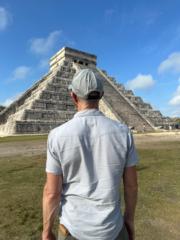13h • Crypto / Web3
Centralization vs. Decentralization — Why It Matters
At the heart of Web3 is a choice: Who do you trust with your money, data, and identity?
- Centralization = one company or authority controls the system.
- Decentralization = power is distributed across many nodes and participants.
This isn’t just technical — it’s a values choice about sovereignty, resilience, and trust.
🔒 Centralized Systems (CEX / Platforms)
- Examples: Coinbase, Binance, traditional banks, Facebook.
- Pros: Easy to use, fast onboarding, customer support.
- Cons: Single point of failure, censorship risk, “not your keys, not your coins.”
- Stewardship Lens: Convenience comes at the cost of autonomy.
🌍 Decentralized Systems (Wallets / Protocols)
- Examples: MetaMask, Rabby, Rainbow (wallets); Uniswap, Aave (protocols).
- Pros: No gatekeepers, censorship-resistant, user owns their keys.
- Cons: Higher learning curve, full personal responsibility, risk of scams if careless.
- Stewardship Lens: True sovereignty, but requires discipline and education.
⚖️ The Trade-Off
- Centralization = smoother UX, but vulnerable to shutdowns, hacks, or regulations.
- Decentralization = more resilient and empowering, but you carry the responsibility for safekeeping and learning.
💡 Stewardship means knowing when to use each — and prioritizing decentralization for long-term empowerment.
🙏 CTA
👉 What decentralization value matters most to you — privacy or resilience? Reply below.
Read More: Consensys — What is Decentralization?
0
0 comments

skool.com/divine-stewardship-community-8680
Co-create sacred abundance through spiritual embodiment, digital stewardship, and Web3 sovereignty in community.
Powered by





